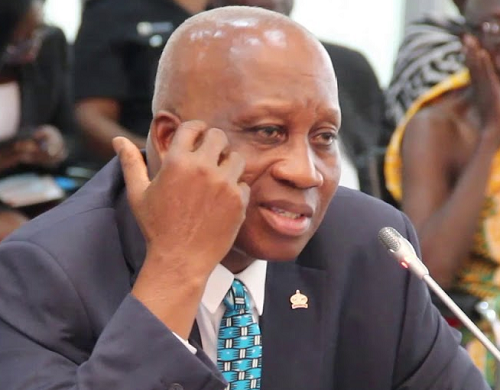
Judiciary committed to resolving electoral disputes
The Director of the Judicial Training Institute (JTI) and Justice of the Supreme Court, Justice Samuel K. Marful-Sau, has reiterated the judiciary’s commitment to settle all electoral disputes that come before the court.
According to him, the timely disposal of electoral disputes was one of the key tenets of the country’s democratic processes, hence the need to resolve them within the shortest possible time.
Advertisement
He was speaking at the training of 35 selected court registrars of the Supreme, Appeal and High courts on electoral laws.
Justice Marful-Sau observed that there was agitation after the December 7 elections and said: “I know you have listened to radio and read the newspapers and there is so much agitation. I can see that so many cases will come to the court especially parliamentary election disputes.
“Candidates may decide to come to court, and when they come, we should not fail them because we are expected to deliver justice within the shortest possible time,” he said.
Training
The training was organised by the Senior Staff Association of the Judicial Service of Ghana (SSA/JUG), in collaboration with the JTI and the STAR Ghana Foundation.
It was on the theme: “The role of registrars in the adjudication of electoral disputes”.
Justice Marful-Sau explained that the objective of the training was to educate the registrars on their role in the adjudication of electoral disputes and the processes involved in the commencement of parliamentary election disputes.
The training, he said, would facilitate the early disposal of any electoral dispute brought before the court in the coming days.
“Electoral dispute is something that is so dear to our democratic process and so it should be given special treatment. It should not be treated like a land or labour case because everything concerning it is time bound,” he said.
Electoral dispute
The acting President of the SSA/JUG, Mrs Marilyn Suttah, observed that election-related disputes formed an intrinsic part of the country’s electoral process and intimated that the credibility of the process could be measured by the capacity of state institutions, such as the judiciary, to effectively resolve such disputes.
The Judicial Service, she said, had improved justice delivery over the past decade through various strategic interventions in order to build the capacity of its staff and administer justice expeditiously.
“The service, therefore, recognises continuous legal education as critical and hence utilises every opportunity to secure relevant training for judges and staff.”
Registrar
Mrs Suttah noted that the role of the registrar towards effective election dispute adjudication was very crucial, since he or she was the first port of call for litigants.
However, she said, registrars had not been trained and sensitised to the provisions that guided their work, adding that that “has become necessary for the capacity of frontline staff to be enhanced, specifically on their role in the adjudication of electoral disputes in order to enhance their knowledge to be able to efficiently and effectively provide the required support to the judges”.
“This training and capacity gap requires immediate addressing to ensure the holistic preparedness of the entire judicial institution to effectively discharge its mandate,” she said.
Background
Ahead of the December 7 general election, the Supreme Court launched the fourth edition of the manual on election adjudication in Ghana, with the assurance that disputes brought before it would be resolved within 42 days.
The manual is a reference point for all electoral laws in the country, as well as court decisions on electoral disputes.
It serves as a guide for judges, lawyers, political parties, the EC, candidates and the public on electoral laws, court decisions and the procedures involved in election adjudication from the High Court, which deals with parliamentary election disputes, to the Supreme Court, which deals with presidential election disputes.
The manual was first introduced for the 2008 elections by the then Chief Justice, Mrs Justice Georgina Theodora Wood, and has subsequently been revised and updated every election year, taking into consideration changes in electoral laws and new court decisions on electoral disputes.
Apart from the new amendments to the Supreme Court Rules, other pieces of updated information in the manual include the Public Elections (Registration of Voters) Amendment Regulations (C.I. 126), which makes the Ghana Card and the passport the only acceptable legal documents required for one to register as a voter, and this year’s Supreme Court decision that upheld C.I. 126 and the EC’s constitutional mandate to compile a new voters register.
The fourth edition was put together by a committee chaired by Justice Jones Dotse, a Justice of the Supreme Court.




